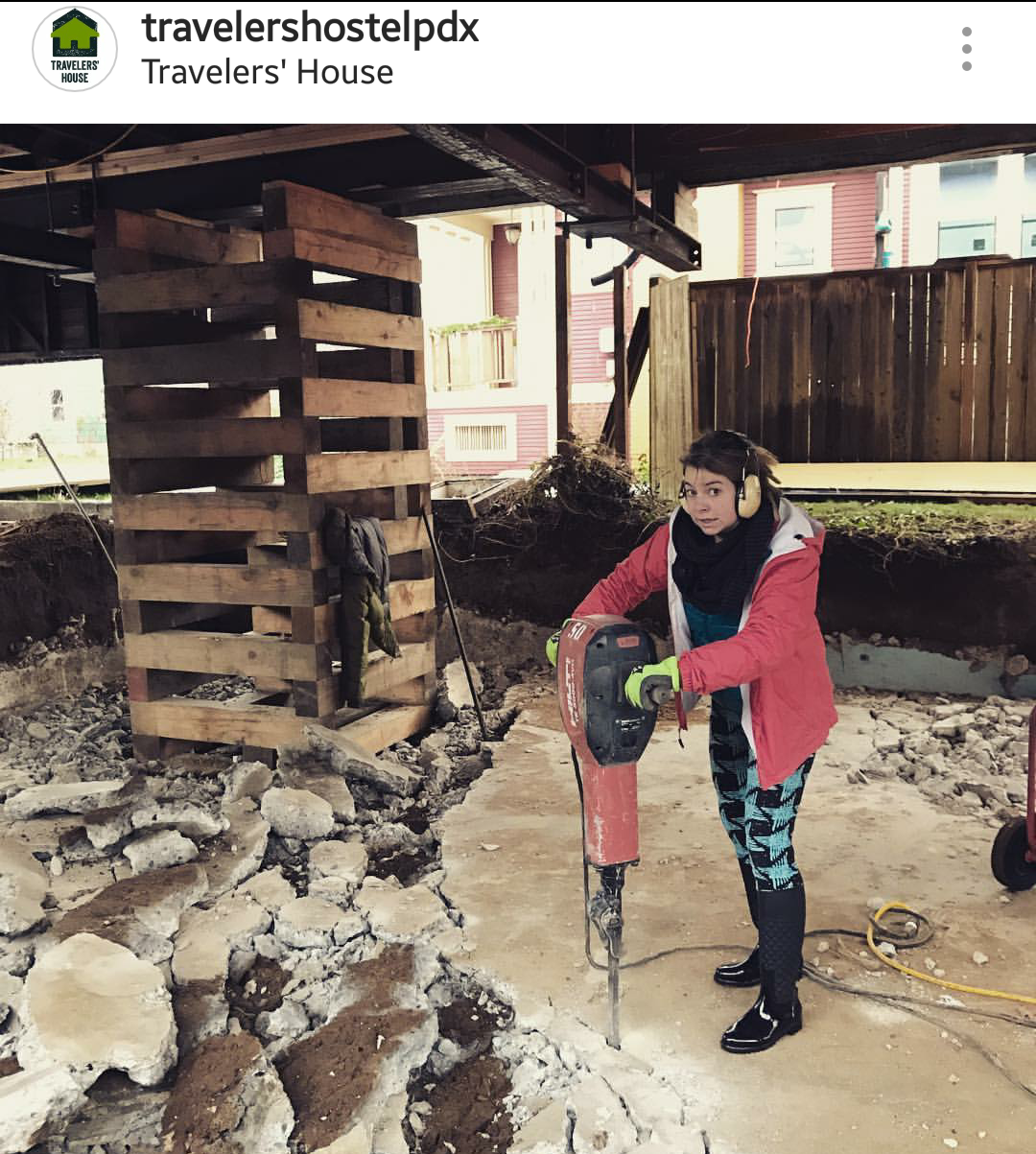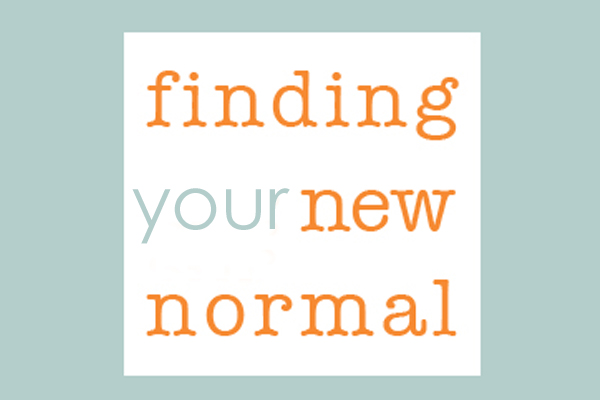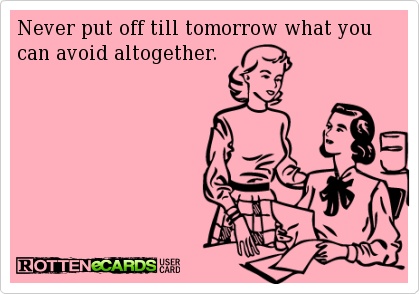Another year has flown by. For many hostels in the northern hemisphere, January represents the low season with colder temperatures, fewer guests, and the chance to relax a little. Yet even hostels can’t escape the pull of cliches like “New Year, new you!” From starting major renovations to upgrading linen, low season offers a chance to prepare for the craziness to come.

Even on my road trip from California to Canada I couldn’t escape hostel renovations. I stopped for a couple nights at Travelers House in Portland in late December and they put me to work!
These fixes can be necessary, but I think it’s the less obvious changes remaining over time that can actually hurt hostels. Getting your lounge couches reupholstered will fix a clear problem like torn fabric and may bring an instant face lift to your property. But what about the slow moving subtle changes that, when ignored or forgotten, inadvertently become accepted problems.
Enter: “the new normal”. This is the concept that something has changed, and despite a certain initial reaction (positive or negative), over time it became the accepted norm. This can work in your benefit when you are trying to change something, especially when facing resistance.
For example, you have a new task you want the night shift to do, and initially they grumble about the extra work. Over time phrases like “we never had to do this before” will fade away as the updated task list becomes the new normal. Not surprisingly, I’ve found this is especially true as staff changes over.
However the new normal can also hurt you when it’s caused by sliding performance or expectations. For example:
A cabinet hinge breaks in the staff storage area. The hardware to fix it is not laying around, so someone McGyvers a piece of rope to hold it on until it can be properly fixed the next day. The next day the manager is busy, and then the hardware store is closed, and then suddenly it’s been a week. And then two weeks. Everyone knows it needs to be fixed, but as time goes on it just becomes normal that the cabinet uses rope and people stop noticing.
Fortunately in that type of example, though probably pretty common in many hostels, no guests are exposed to the decline of what is ‘normal’. Yes, it’s an issue, but it’s not really hurting business, reputation, or customer service. Which, in fact, makes it even easier to slide from ‘look at this makeshift repair” to “yeah, that cabinet’s always had rope on it.”

Image credit: http://www.maurilioamorim.com/
What about those issues that DO affect guests though? My last hostel in San Francisco had 4 flights of stairs, with no elevator. It was our SOP to meet guests at the bottom for every check in to both warmly welcome them, and help them carry their bags. Inevitably, with every group of staff I had over 4+ years, at some point the intercom interaction would change from “I’ll be right down to help you with your bags” to “Do you need help with your bags?”
A subtle change, but an important one, as many guests would say no even though they clearly would have preferred help. Not to mention it was a poor customer service example for the extremely friendly & helpful atmosphere we were creating. No matter how much “always go to the bottom of the stairs” was drilled in training, it was probably the most omnipresent ‘new normal’ change I encountered with each new wave of staff.
I also learned early on that if I didn’t nip it in the bud quickly upon hearing the change, it really would become the new normal. New staff would hear older staff and think it was ok. No one really wants to climb 4 flights of stairs carrying a 50 pound suitcase (though it’s one reason I never paid for a gym membership), and that small change in language was permission to get out of doing it.
Laziness aside, it’s amazing how easy it is for us to just accept that something has ‘always been that way’ without questioning why, or how it could be improved. Or to think “Meh, that’s needed to be fixed for ages, what’s one more day” instead of “That needs to be fixed”, and then making a plan. Remember that according to Parkinson’s Law, work expands to fill the time available. This means if you never set a deadline, it will probably never get completed.

Yeah... About that...
Personally I can be really bad about allowing changes to fade into the background, unless I’m consciously in the mindset of “what isn’t quite right?” It’s very easy for us to fall into old habits of thinking, and therefore create new normals that don’t live up to our true standards. Yet when I pause and take stock, I find so much that has slowly shifted over time.
So what can we do about this? Start observing things fresh, and start right now. Put yourself in your guests’ shoes, or even a new employee. What would they see or experience that is out of place, not normal, or not up to standard? What can be improved or changed, and how?
It doesn’t matter if you’re a few weeks into the new year or a few months. As one of my favorite proverbs says, “The best time to plant a tree was 20 years ago. The second best time is now.”
Do you have experience with changes becoming “new normals”? How have you dealt with these when they are not productive or positive? Sign in and comment below!
**I know many of you comment on these blogs on the site's FB page, which is great, but it would be even better to have the comments directly on here for everyone to read. Thanks for your input and helping to further our knowledge.**
In case you missed it:
<< My last post: Preventing Human Trafficking: The Role of the Hospitality Industry
>> My next post: How To Run A Successful Crowdfunding Campaign for Hostels
Just joining the show and don't know who I am? Check out my introductory blog post.
As always, send any suggestions, questions, or thoughts on the blog my way by emailing me here.
Peace & love,
Courtney
P.S. Don't miss out! Follow Hostel Management on Twitter if you would like to receive updates when my new blog posts are made.


